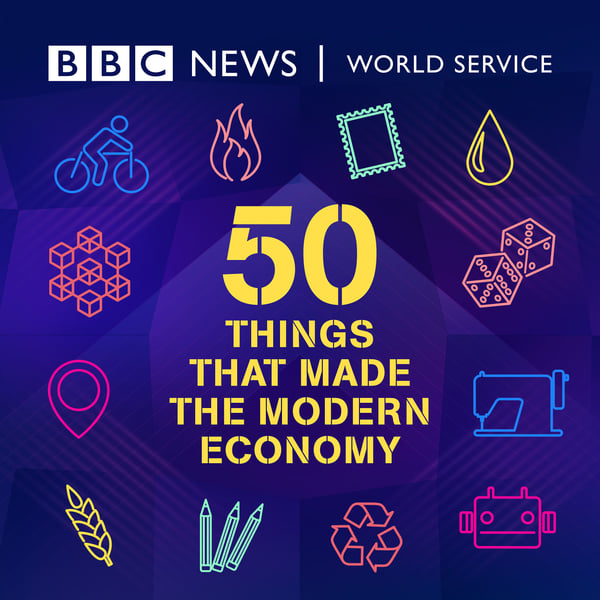Fire
50 Things That Made the Modern Economy
BBC
4.8 • 2.6K Ratings
🗓️ 5 August 2019
⏱️ 10 minutes
🧾️ Download transcript
Summary
Transcript
Click on a timestamp to play from that location
| 0:00.0 | The Canians seemed to act as chimneys, through which the wind and fire swept with the |
| 0:23.7 | roar of a thousand freight trains. Their smoke and heat became so intense that it was difficult to breathe. |
| 0:30.7 | The whole world seemed to us men back in those mountains to be aflame. Many thought that it really was the end of the world. |
| 0:40.7 | August the 20th, 1910. Forrest Ranger Ed Polaski was caught in the middle of what would become known as the big blow-up. |
| 0:52.7 | Polaski realized his task was no longer to save the forests of Northern Idaho, but to save the firefighters. |
| 0:59.7 | Trees were falling all about us under the strain of the fires and heavy winds and it was almost impossible to see through the smokey darkness. |
| 1:10.7 | Had it not been for my familiarity with the mountain trails, we would never have come out alive. |
| 1:18.7 | For we were completely surrounded by raging whipping fire. |
| 1:24.7 | My one hope was to reach an old mine tunnel which I knew to be not far from us. |
| 1:31.7 | We reached the mine just in time, for we were hardly in when the fire swept over our trail. |
| 1:41.7 | Polaski passed out. The next morning he couldn't see. His hands were burned, but he was alive. And so were all but five of his men. |
| 1:52.7 | The big blow-up had killed 86 people and consumed enough wood to build 800,000 houses. It also seared the national consciousness. |
| 2:04.7 | The US Forest Service promised to douse all wildfires as quickly as it could. |
| 2:10.7 | That was unwise. We'll come back to why, but you can understand it. Fire is terrifying. It's also fundamental to the modern economy. |
| 2:21.7 | And its story goes back much further. |
| 2:25.7 | Still, for the first 90% of Earth's history, there was no fire at all. There were volcanic eruptions, but molten rock isn't on fire. |
| 2:38.7 | Because fire is a chemical reaction, the process of combustion. It's life that creates both the oxygen and the fuel that fires need to burn. |
| 2:49.7 | Fossil evidence suggests that flammable plant life evolved around 400 million years ago, and periodically went up in smoke due partly to those volcanoes, but mostly to lightning. |
| 3:02.7 | In recent years satellite observations have shown us how surprisingly common lightning is. There are around 8 million strikes a day. |
| 3:12.7 | It's still responsible for more wildfires than ill-advised barbecues or carelessly discarded cigarette butts. |
| 3:19.7 | Fire shaped landscapes, and with it evolution. It enabled the spread of grasslands somewhere around 30 million years ago, without fire that have reverted to scrub or forest, and grasslands are thought to have played a role in the emergence of the hominins who evolved into us. |
| 3:41.7 | Try to imagine the economy before our ancestors tamed fire. You can start by discarding any products made with metal or using metal tools, metals starts life in a furnace. The same goes for glass. |
... |
Please login to see the full transcript.
Disclaimer: The podcast and artwork embedded on this page are from BBC, and are the property of its owner and not affiliated with or endorsed by Tapesearch.
Generated transcripts are the property of BBC and are distributed freely under the Fair Use doctrine. Transcripts generated by Tapesearch are not guaranteed to be accurate.
Copyright © Tapesearch 2025.

